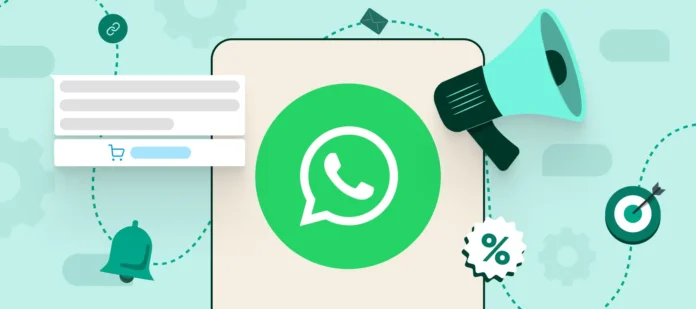Digital communication landscapes have shifted dramatically toward messaging platforms, with WhatsApp processing over 100 billion messages daily across its 2.78 billion global user base. When businesses boost your business with WhatsApp marketing, they tap into unprecedented direct communication channels that bypass traditional email filtering and social media algorithm limitations. This messaging platform offers unique advantages including 98% open rates compared to email’s 20% average, real-time message delivery confirmation, and multimedia content sharing capabilities that create immersive customer experiences. However, successful WhatsApp marketing requires understanding platform restrictions, user privacy expectations, and regulatory compliance requirements that vary significantly across international markets.
Message Delivery Architecture and Technical Capabilities
WhatsApp Business API operates through a tiered messaging system that categorizes communications into conversation types including customer service, marketing, and utility messages. Each category carries different pricing structures and delivery limitations designed to prevent spam while maintaining user experience quality. Marketing messages require explicit customer opt-in consent and are restricted to approved message templates that undergo Facebook’s review process.
The platform’s end-to-end encryption creates both opportunities and challenges for business communications. While encryption ensures message privacy and builds customer trust, it prevents third-party analytics tools from accessing detailed engagement metrics beyond basic delivery confirmations and read receipts. This limitation requires businesses to develop alternative measurement strategies focusing on customer response patterns and conversion tracking through integrated CRM systems.
Technical integration typically involves webhook configurations that enable real-time message processing and automated response systems. API rate limits restrict message volume to prevent system overload, with standard accounts limited to 1,000 business-initiated conversations per 24-hour period. These limitations scale upward based on messaging volume history and account verification status.
Customer Segmentation and Behavioral Targeting
WhatsApp marketing effectiveness depends heavily on sophisticated customer segmentation strategies that leverage available data points including previous interaction history, demographic information, and purchase behavior patterns. Unlike traditional email marketing platforms, WhatsApp provides limited native segmentation tools, requiring businesses to implement external customer relationship management systems that sync with messaging workflows.
Behavioral triggers become particularly powerful in WhatsApp environments where immediate message delivery creates opportunities for time-sensitive communications. Abandoned cart recovery messages, appointment reminders, and personalized product recommendations achieve significantly higher response rates when delivered through WhatsApp compared to traditional channels.
Geographic targeting capabilities allow businesses to customize messaging based on local time zones, cultural preferences, and regional promotional campaigns. This becomes especially valuable for international businesses managing customer relationships across multiple markets with varying communication expectations and regulatory requirements.
Multimedia Content Strategy and Engagement Optimization
WhatsApp supports diverse content formats including text, images, videos, documents, and audio messages, enabling rich communication experiences that surpass traditional text-based marketing channels. Video messages achieve particularly high engagement rates, with product demonstration videos and behind-the-scenes content creating authentic brand connections that drive purchasing decisions.
Interactive content features including quick reply buttons, call-to-action buttons, and list messages streamline customer interactions while providing valuable engagement data. These features reduce conversation friction and improve conversion rates by eliminating typing requirements for common customer responses.
Document sharing capabilities enable businesses to deliver detailed product catalogs, instruction manuals, and promotional materials directly to customer devices. This functionality proves especially valuable for B2B communications where technical specifications and detailed documentation support purchasing decisions.
Automation Systems and Chatbot Integration
Artificial intelligence-powered chatbots handle routine customer inquiries while preserving human agent availability for complex issues requiring personalized attention. Natural language processing capabilities have improved significantly, enabling chatbots to understand context and provide relevant responses that maintain conversation quality.
Chatbot workflows typically include conversation routing rules that escalate complex inquiries to human agents based on keyword detection, customer sentiment analysis, or predetermined conversation paths. This hybrid approach ensures efficient resource utilization while maintaining customer satisfaction levels.
Integration with existing business systems including inventory management, order processing, and customer support platforms creates seamless automation workflows that reduce manual intervention requirements while maintaining accurate information delivery.
Privacy Compliance and Regulatory Considerations
GDPR, CCPA, and similar privacy regulations impose strict requirements on business messaging practices including explicit consent collection, data retention limitations, and customer opt-out procedures. WhatsApp marketing campaigns must implement robust consent management systems that document customer permissions and provide easy unsubscribe mechanisms.
International messaging campaigns face additional complexity due to varying privacy regulations across jurisdictions. Businesses operating globally must implement region-specific compliance procedures that address local requirements while maintaining operational efficiency.
Data protection extends beyond regulatory compliance to include customer trust building through transparent communication about data usage, storage practices, and sharing policies. Clear privacy statements and consistent communication practices build long-term customer relationships that support sustainable marketing strategies.

